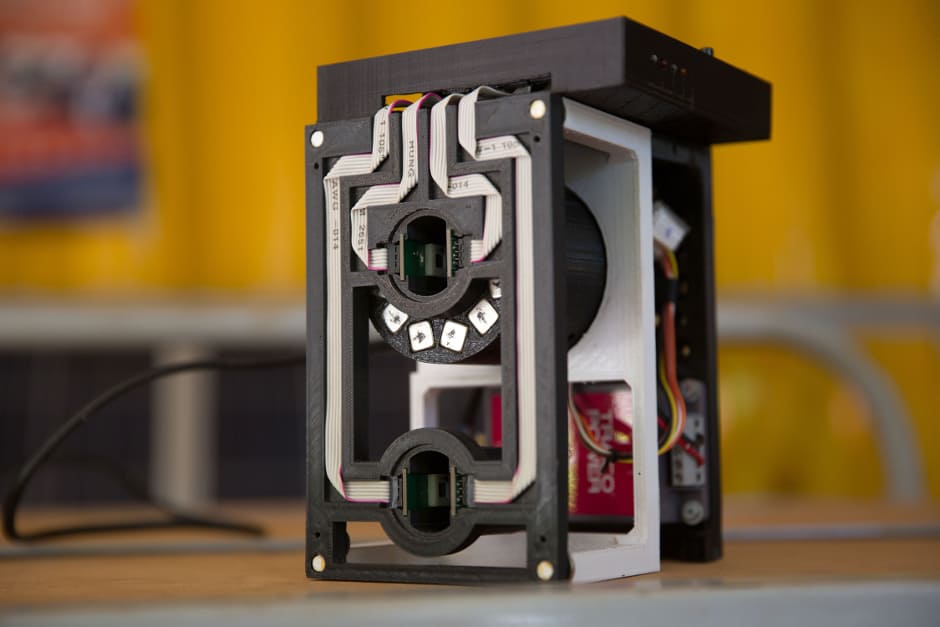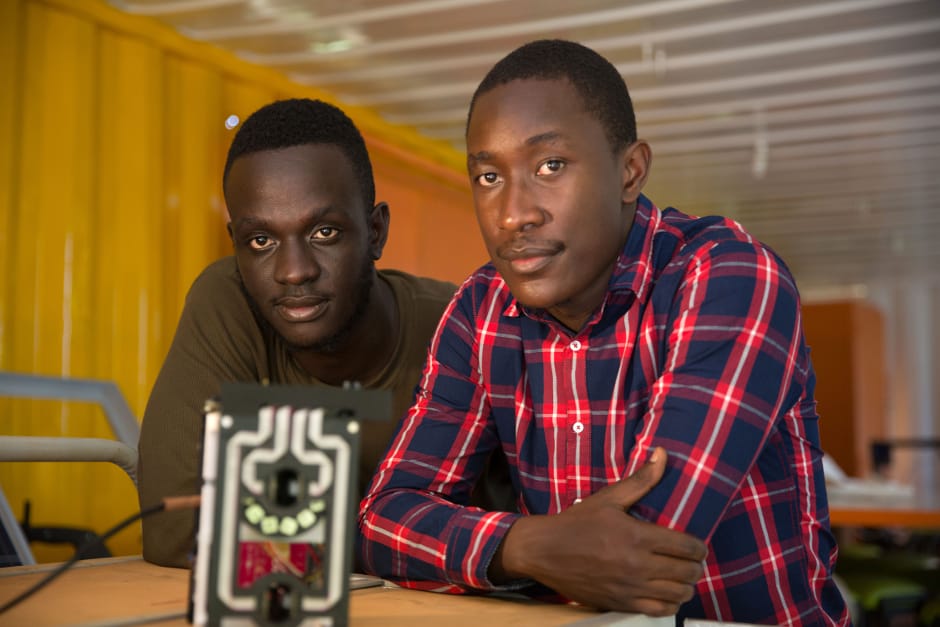
Brian Gitta created the device, which works in conjunction with a mobile phone, after he and members of his team developed malaria, which caused them to miss lectures during their time at Makerere University in Kampala.
Dubbed Matibabu, the low-cost, reusable device clips onto a patient’s finger and requires no specialist expertise to operate. The results are available within one minute (compared to 30 minutes with current tests) on the phone that is linked to the device.
A beam of red light shone through the user’s finger detects changes in the shape, colour and concentration of red blood cells, all of which are affected by malaria. Team member Shafik Sekitto told the Guardian that people infected with malaria have parasites in their blood that produce waste, one type of which is magnetic. The magnet in Matibabu detects this anomaly and sends the results to a mobile device.
Matibabu is currently undergoing testing in partnership with a national hospital in Uganda, and is sourcing suppliers for the sensitive magnetic and laser components required to scale up production.

The device is aimed at individuals, health centres and diagnostic suppliers. The team also aims to set up Matibabu on the streets to allow people to do a single test at a time.
Through their participation in the Africa Prize, the Matibabu team have been approached by international researchers offering support and are currently writing up their findings into an academic paper, to be published within the next few months.
“We are incredibly honoured to win the Africa Prize – it’s such a big achievement for us, because it means that we can better manage production in order to scale clinical trials and prove ourselves to regulators,” said Gitta. “The recognition will help us open up partnership opportunities – which is what we need most at the moment.”
Gitta wins the first prize of £25,000. At an awards ceremony in Nairobi, Kenya on 13 June 2018, four finalists from across sub-Saharan Africa delivered presentations, before Africa Prize judges and a live audience voted for the most promising engineering innovation.
The three runners-up, who each win £10,000, are:
- Collins Saguru, a Zimbabwean working in South Africa, for AltMet, a low-cost, environmentally friendly method for recovering precious metals from car parts
- Ifediora Ugochukwu from Nigeria for iMeter, an intelligent metering system that gives Nigerian users transparency and control over their electricity supply
- Michael Asante-Afrifa, from Ghana for Science Set, a mini science lab that contains specially developed materials for experiments
The Africa Prize for Engineering Innovation, founded by the Royal Academy of Engineering, is Africa’s biggest prize dedicated to engineering innovation. It encourages sub-Saharan African engineers to develop innovations that address crucial problems in their communities in a new way.




Poll: Should the UK’s railways be renationalised?
I'm reminded of the old adage about stupidity is doing the same thing time and time again, expecting different results. The current model simply...